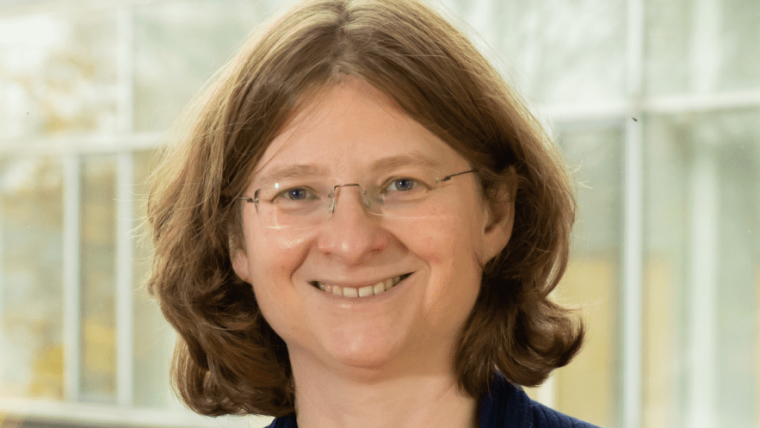
Prof. Dr. Rosalind Jane Allen
»Using physical and theoretical tools combined with microbiological experiments, to understand how microbes grow, die and survive.«
Academic career
1999 · First Degree
Cambridge University, UK
2000 · Second Degree
University of Pennsylvania, USA
2003 · Doctoral Studies
Cambridge University, UK
2006 · Juniorprofessorship
Edinburgh University, UK
2017 · Professorship
Edinburgh University, UK
2021 · Professorship
Friedrich-Schiller-Universität Jena
Interview
What do you like about your work as a researcher? Why did you decide to become a researcher?
I like the independence and the ability to follow up my own ideas. I also really enjoy discussing with other researchers and the openness and internationality of the scientific community.
I decided to become a researcher because I really enjoyed the research projects that I did as a student.
Who were/are the role models who influenced your career choice?
Probably the greatest influence was my PhD supervisor. I was also heavily influenced by my academic tutor as an undergraduate, by my postdoc advisor and by my colleagues during my postdoc and early group leader positions.
Who or what gave you the most encouragement along your way to achieving your current position? Whose support, or what support, was most important for you?
All my mentors (see above) have been highly supportive. The constant support of my PhD advisor has been especially important for me.
Has your career progressed smoothly in a linear way? If not, how have you overcome distractions of obstacles?
My career progressed very well until I started my first independent position in 2006 at Edinburgh University. At that point I decided to make a big change of direction, starting to do experiments as well as computational modelling. I think that was a good decision in the end but it really slowed me down. I also found the transition to running my own group and competing for funding very stressful (especially in the UK environment where it is very hard to get funding).
An academic career often seems to be one of great uncertainty. Has this been the case for you?
I did not face much uncertainty about job security since I was lucky to have obtained a permanent job very early in my career. However I often felt uncertainty about getting grants funded. Initially I found the grant writing process very stressful but later I found that writing grants together with collaborators was much less stressful than doing it by myself. I also learned to step back from the job and not take things personally when something goes wrong.
How important is networking to your career? Do you have a particular strategy for networking?
I think that good networking can make one's life much easier in academia (although this is unfortunate since it should be more about the quality of one's science). I don't have a particular strategy but I try to accept to give presentations about my work, and at conferences I try to attend discussion sessions and social events even though sometimes they are a bit awkward. However for collaborations I think a good interaction with the collaborator is more important than the potential networking advantages.
How do you manage to balance a demanding career with a private life?
I have two young kids and honestly it is difficult at times to be as productive at work as I would like to be. This has been especially the case during the pandemic. I think the best way to deal with it is not to compare oneself with other people who are in a different situation, and to just do the best you can in whatever situation you find yourself. Also do not be afraid to say no to tasks that you do not have time to do.
What tips would you offer young women starting out on an academic career? Could you offer some Dos and Don’ts?
I think that everyone's situation and trajectory is very different so I am reluctant to offer any dos and don'ts. What works for one person can be completely different than what works for someone else. However I think it's important to believe in yourself, to make sure you enjoy the science that you are doing, and not to be too obsessed with the competitive aspects of academia. At the end of the day it should not be a race.
Do female academics of the University of Jena feel comfortable in their roles? What makes the University of Jena attractive for you?
I am new in Jena so I couldn't say how other female academics feel here. For me the University of Jena is attractive because it is a friendly and supportive environment, and it gives me the chance to interact with top microbiology collaborators and to benefit from the exciting environment and resources that are provided by the Microverse cluster of excellence.
Contact
Rosalind Allen, Univ.-Prof. Dr
07743 Jena Google Maps site planExternal link